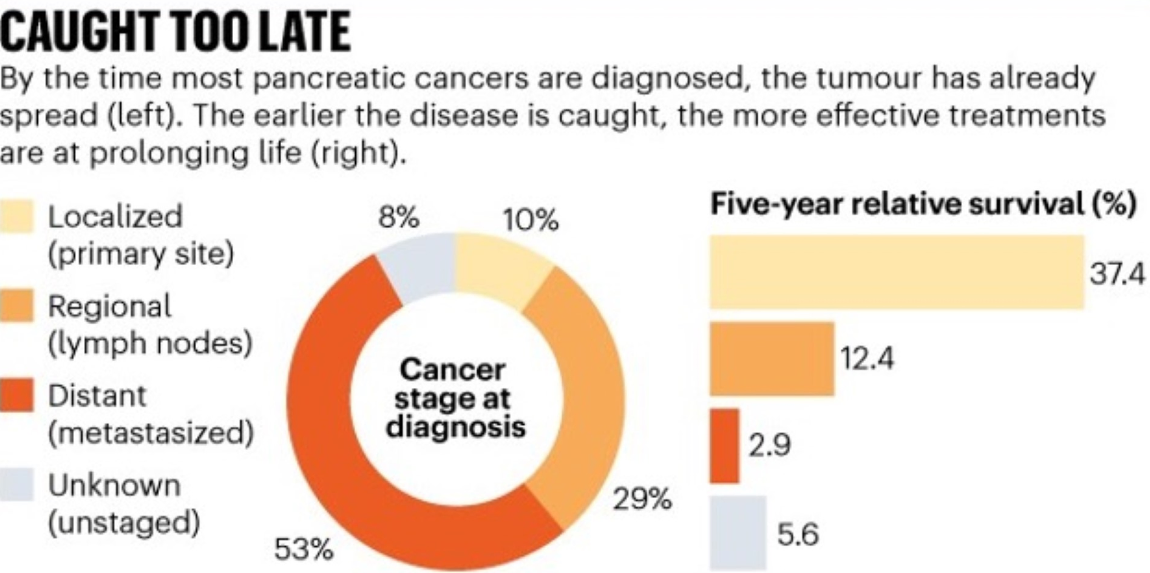Why Is Early Detection Important?
For eligible patients, surgery is the best option for long-term survival of pancreatic cancer. It can increase a patient’s survival by about ten-fold. But most patients are diagnosed at later stages and cannot have surgery.
In addition, although 15-20% of pancreatic cancer patients may be eligible for surgery, data shows that up to half of those patients are told they are ineligible. The Pancreatic Cancer Action Network strongly recommends you see a surgeon who performs a high volume of pancreatic surgeries (more than 15 per year) to determine eligibility.
Ways to find pancreatic cancer in the earliest stages are urgently needed. The Pancreatic Cancer Action Network, other advocacy organizations and the scientific community are working to find pancreatic cancer earlier through:
- Awareness of symptoms
- Efforts to improve imaging
- Studies focused on biomarkers (biological clues) that could help doctors diagnose, monitor and treat the disease
- Efforts to improve how people at high risk are found and monitored
Why Is Pancreatic Cancer Hard to Find Early?
- The pancreas is deep in the abdomen. Doctors usually cannot see or feel the tumor during a physical exam.
- Pancreatic cancer symptoms are not always obvious and usually develop over time.
- Tests used to diagnose pancreatic cancer do not always detect small lesions, pre-cancers or early-stage cancers well.
- Researchers have had a hard time figuring out which people to screen. Broad screening can cause medical, emotional and financial challenges.
- Doctors use several tests to diagnose pancreatic cancer, but there is no standard, single test.
